Ruesch Center Symposium Focuses on Early-Onset GI Cancer
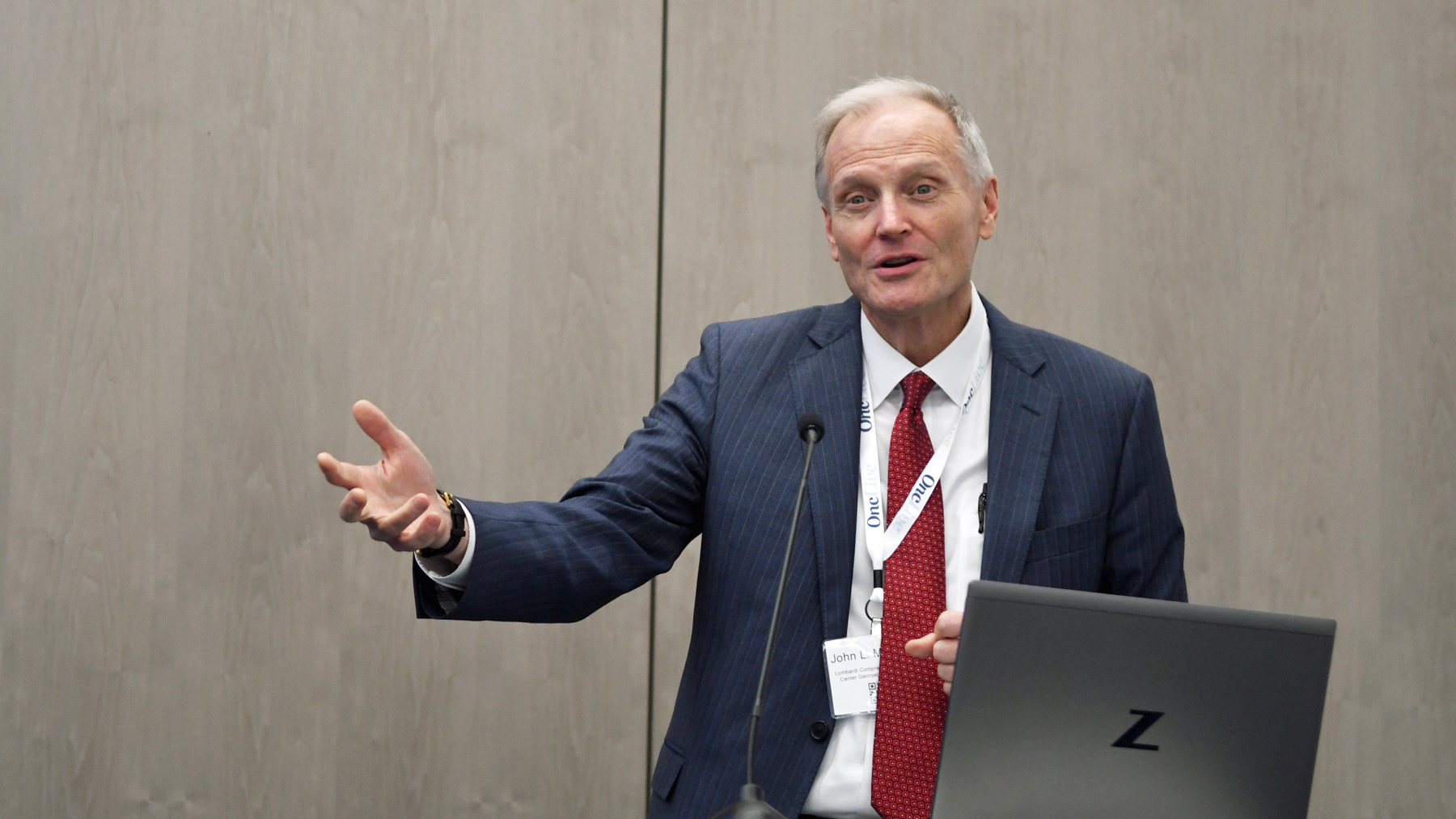
Posted in Lombardi Stories | Tagged cancer, cancer research, colon cancer, colon cancer in young people, gastrointestinal cancer, Ruesch Center, Ruesch Center Symposium
(November 22, 2023) — With an emphasis on early-onset gastrointestinal cancer, the 14th Annual Ruesch Center Symposium brought together nearly 300 health care providers, researchers, advocates, patients and caregivers November 16-18 to honor those dedicated to curing GI cancers, discuss the experiences of patients and caregivers, and share the latest research in the field.

John Marshall, MD, director of the Ruesch Center for the Cure of Gastrointestinal Cancers at Georgetown University’s Lombardi Comprehensive Cancer Center, kicked off the November 17 scientific briefing by defining its focus — young people getting GI cancers at an alarming rate.
“What we are hoping is that the lessons we learn from this topic will actually not only help our young people getting these diseases but also the many people who are getting these diseases who are older,” Marshall said.
Since 2009, the Ruesch Center has worked to increase advocacy and awareness for patients with GI cancers. “We unfortunately represent the most common and the most fatal group of cancers on the planet,” Marshall said. “Our main mission is to increase awareness and bring groups together to focus and educate each other on this topic in the hopes of sending out disciples and troops around the world to try to join in the cause, to try to move the bar, for everyone.”
A Concerning Trend
Within the last 15 years, rates of GI cancer diagnosis in younger patients started to climb, Marshall said, showing a painting by one such patient. Alicja Brown, PhD, was in her early 40s and working in drug development at AstraZeneca when she was diagnosed with metastatic colon cancer in 2021. Three paintings by Brown, who died in May, are currently on display in the Lombardi clinic waiting area at MedStar Georgetown University Hospital.
“When I first started 30 years ago on the faculty, there was nobody in my clinic that looked like her,” Marshall said, noting that historically, GI cancer mostly affected patients in their 70s and 80s.“Today, half of my clinic looks like her.”
“There are other cancers that are being observed as having this shift, this inflection point, of early onset cancers,” Marshall added. “Our survival is supposed to be improving, not shifting this way. So something is going on.”
The Role of the Microbiome
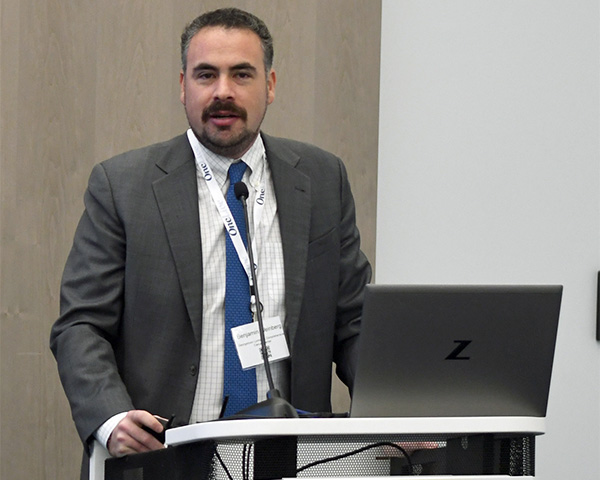
Researchers are increasingly studying whether the microbiome plays a part in determining who develops cancer, said Georgetown Lombardi’s Ben Weinberg, MD, associate professor of medicine at Georgetown, an attending physician in the division of hematology/oncology at MedStar Georgetown University Hospital.
“This is an attractive target for those trying to compare early onset versus late onset because we know the microbiome is dynamic, it can change over time,” Weinberg said. “It can change in response to not just exposures but things like antibiotics, probiotics, but also as you age.”
“This is also a topic near and dear to my heart as someone who is treating about a half-dozen patients under 50 actively on chemo with colorectal cancer at the moment,” Weinberg added. “We really need to figure this out.”
Kat Zambon
GUMC Communications
More Highlights from the Day
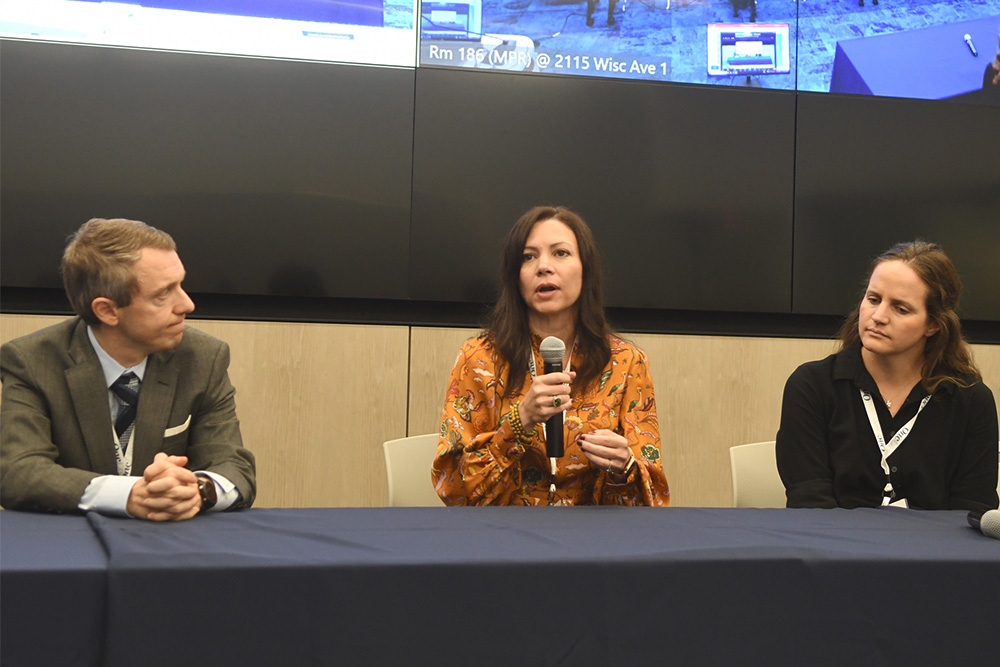
Marios Giannakis, MD, PhD, Dana-Farber Cancer Institute; Leigh K. Greathouse, PhD, MPH, MS, RD, Baylor University; and Julia L. Drewes, PhD, Johns Hopkins University, jointly presented “Microbiome/Biological Basis of Early Onset GI Cancers.”
The scientific briefing provided a forum for discussion about early-onset GI cancers.

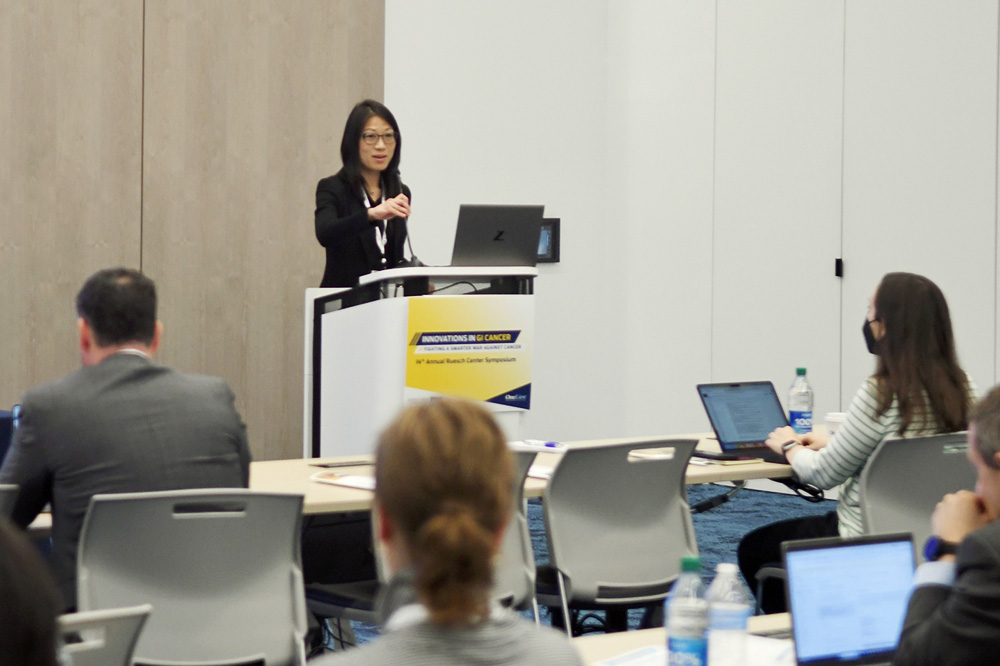
Yi-Qian Nancy You, MD, MHSc, FACS, (pictured) of the University of Texas MD Anderson Cancer Center, presented “Survivorship After Early-Onset GI Cancer: Issues and Approaches” with David R. Freyer, DO, MS, Keck School of Medicine, University of Southern California; Anne Blaes, MD, University of Minnesota, Masonic Cancer Center; and John M. Salsman, PhD, Wake Forest University School of Medicine.
Luis A. Diaz, MD, of Memorial Sloan Kettering Cancer Center, delivered this year’s Thomas R. Schafer Memorial Lecture, titled “Immunotherapy and Mismatch Repair Deficiency.”
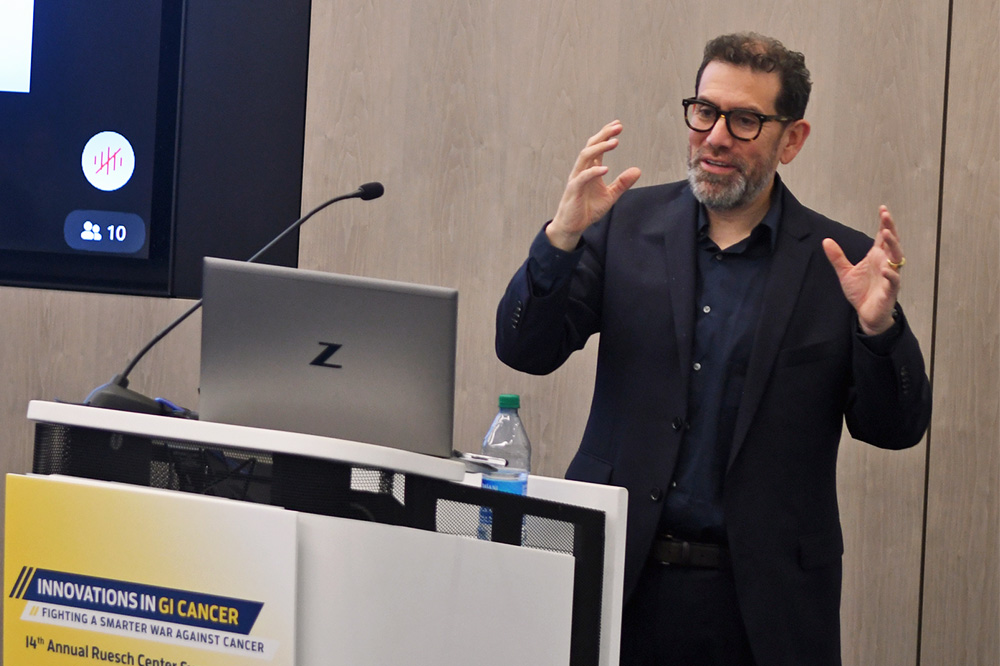
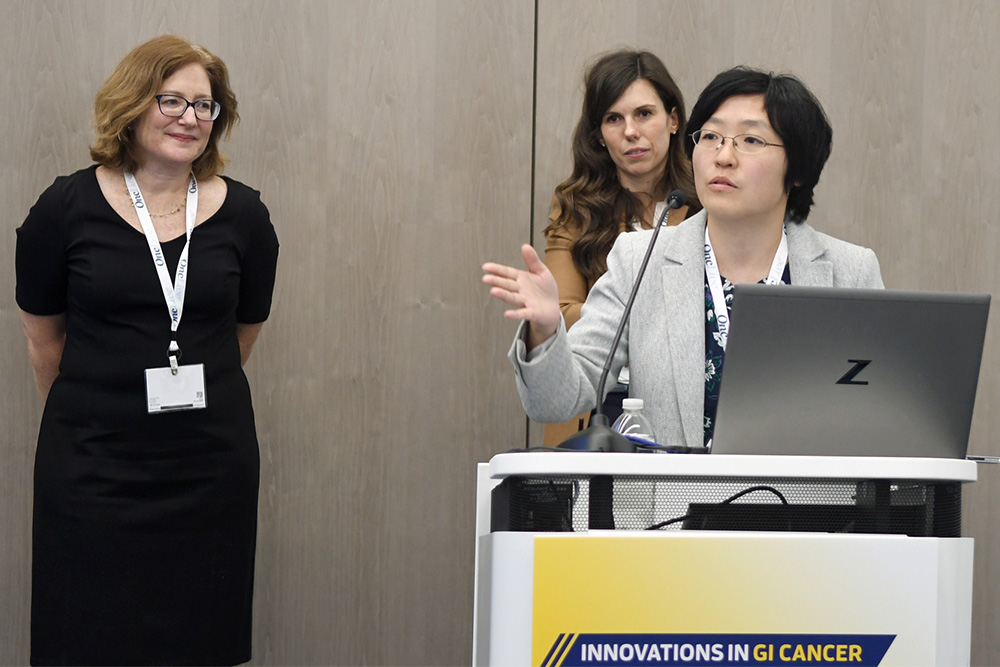
Elena Stoffel, MD, MPH; Caitlin C. Murphy, PhD, MPH, UTHealth Houston School of Public Health; and Xin Hu, PhD, Emory University School of Medicine, gave presentations as part of “Epidemiology and Prevention of Early Onset GI Cancers.”
The scientific briefing also provided participants with a chance to catch up with colleagues.

